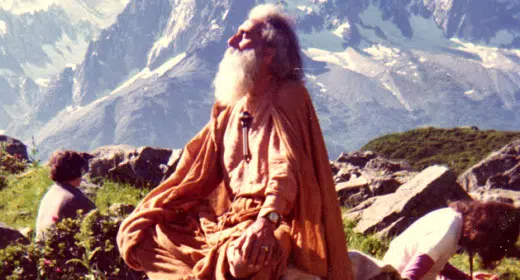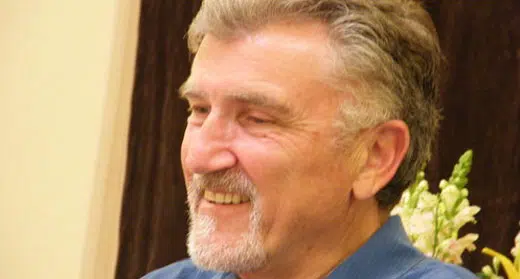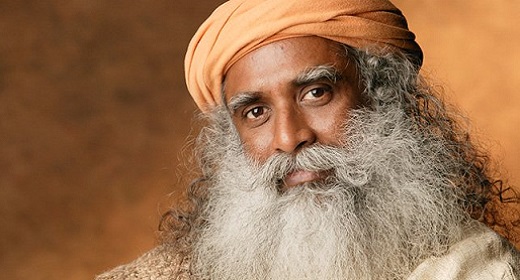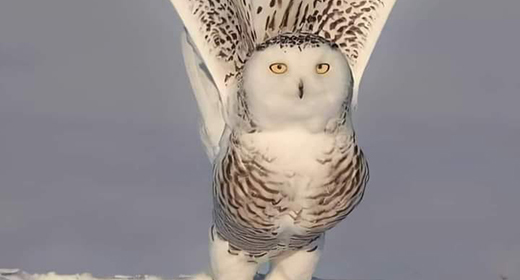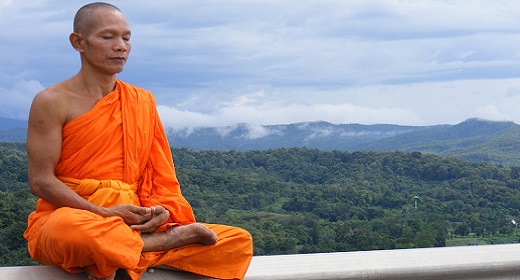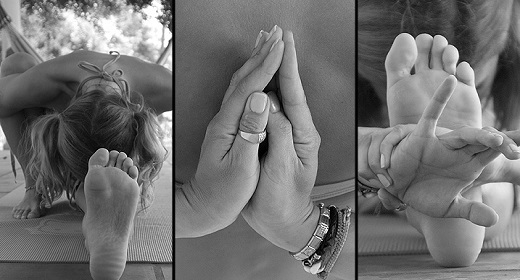Our changing relationship to masculine and feminine archetypes An Interview With Jean Shinoda Bolen, M.D., by Lila Forest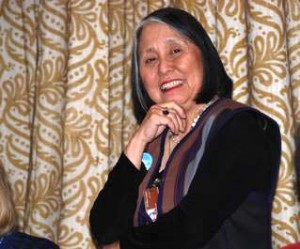 Jean Shinoda Bolen, M.D., is the author of The Tao of Psychology and Goddesses in Everywoman. She is a Jungian analyst and Clinical Professor of Psychology at the University of California at San Francisco. She is on the board of directors of the Ms. Foundation for Woman and also teachers and leads seminars locally and throughout the country.
Jean Shinoda Bolen, M.D., is the author of The Tao of Psychology and Goddesses in Everywoman. She is a Jungian analyst and Clinical Professor of Psychology at the University of California at San Francisco. She is on the board of directors of the Ms. Foundation for Woman and also teachers and leads seminars locally and throughout the country.
Lila: In your book Goddesses in Everywoman, you draw portraits of feminine qualities embodied in the goddesses of Greek mythology and describe their manifestation in women of our time. In psychological terms, one might refer to a “god” or “goddess” as an archetype. Could you begin with your definition of an archetype?
Jean: I see the archetype as a possibility. It’s what can develop in the personality. It is laid down much in the way that one would put a certain amount of, say, salts in a solution. The crystalline structure is inherent, but you don’t see it until there’s enough substance to make it crystallize. Under certain conditions, the inherent pattern will constellate. It’s the same in a human personality: given a certain life energy, a certain pattern, a certain experience, a certain culture, certain archetypes will constellate.
Lila: Do you think that, as human beings evolve, the archetypes evolve with us?
Jean: Yes, I think that they evolve. Rupert Sheldrake, who developed the theory of morphogenetic fields, postulates that when a certain number of human beings change their instinctual or behavioral patterns, it makes it easier for others to change. So he is describing a mechanism by which archetypes can change. It would seem that in the history of the human race, there has been an evolution of specialized functions. There’s been a cultural diversification through time, especially in what’s possible for women.
Now is probably the richest time in history for women to live out a variety of experiences. In fact, we’re called upon to do a juggling act and combine relationships with work with play with creativity, and the development of multiple facets is encouraged in childhood. I think of my 7-year-old daughter joining a soccer team, along with almost everybody in her class. I know that she is learning about teamwork and competitiveness and the joy of being physically competent in ways that my generation never did. We each have the possibility of embodying several archetypes.
The reason for talking about archetypes rather than roles has to do with the depth in which we experience what we do. If, for example, as in the baby boom years, all women were expected to have babies, some went through the motions and tried to be fulfilled through being mothers, but somehow the archetype of the Mother was not activated in their psyches, and that means that the role did not have a deep and significant meaning to them. Usually, their children experienced that lack.
And now women in their late childbearing years with a strong maternal archetype, which I identify with the goddess Demeter, may make decisions to become single mothers (as difficult as it is to be a single mother) because in the depths of their souls, that role gives their lives meaning. The choice is a fulfilling one, while someone else who does not want a child and is denied an abortion is stuck with a role that would diminish her and perhaps make her feel quite bitter. Some women know from the time they’re youngsters that having a baby is really something they want to do; the archetype is strong from the very beginning. Other women, like myself, don’t experience the archetype until pregnancy occurs. The act of bearing a child and the hormonal shift activated the mother pattern in my psyche. I’m glad that I reached my childbearing years at a time when we weren’t deciding whether or not to have children, because I might not have chosen to do so. I didn’t have a strong drive to have a child.
Lila: But you’re saying that for some women, even having that physical experience doesn’t trigger the archetype?
Jean: Yes, and that is really sad, because they feel a lack, and the children feel a lack, and they feel guilty for something that is beyond their conscious choice.
I talk about the archetypes that have to do with relatedness as the vulnerable archetypes, and Demeter, the mother, is one, and Hera, the wife, is another. If you have that archetype in you, being a wife is something that you feel a deep need for. You’re not just following what other people tell you you ought to do. And often a woman can have a very full life but feel, as one woman described, “a hole in her center”, because she didn’t have a mate. Now someone who has the pattern of Artemis, who is a “virgin” goddess, or one-in- herself, would view the marriage experience as potentially imprisoning, rather than fulfilling, and a woman strong in the Persephone type might consider it an abduction, as though she were being not only kept from being free, but taken away from herself.
For some women, solitude is a natural expression of who they are. They prefer to spend their lives without an intimate other. It used to be that you could enter a contemplative order to fulfill that pattern, but our togetherness society makes you look as if there’s something wrong with you if you’re alone.
Lila: If one were to “invent” the pantheon of Greek goddesses now, would there be new goddesses or archetypes?
Jean: What is new is not another one-aspected deity. In a way, all the goddesses emerged from the one Great Goddess; she was everything. Then when the patriarchy came along, the Great Goddess faded from consciousness, and the more specialized qualities were split off from the one. And I see that what we’re going to do now is take those split-off parts of the Great Goddess and re-combine them and integrate them in the psyche. So what is emerging as possible is a woman who has the attributes of many different goddesses, but the end result is integrated.
I’m working on a book on archetypes for men, and one of the things that has become clear about the Greek gods, as opposed to the Greek goddesses, is that the seven goddesses I wrote about pretty much cover most of the aspects of a contemporary woman, but the Greek gods don’t do that for men. Specifically, the compassionate god is missing. I sense that that quality has evolved in men since that time. The archetypes that evolved after the Greek gods were the Christian archetypes, with the figure of Jesus Christ. He doesn’t resemble the Greek gods. He has the dimension of compassion that was missing in them.
Lila: Would you say that if you added Jesus to the pantheon of Greek gods that you would have a fairly complete set of male qualities, or is there more missing?
Jean: I think what is missing is what happens when a boy or a girl is born in a culture where there is a masculine and a feminine aspect of the Deity, when there is an equally strong and yet differentiated masculine and feminine. Something new would evolve out of that. The Greek gods and goddesses especially were the product of a patriarchal culture where power was the major issue, and all of them were dominated by a very unpaternal father: first Uranos, then Kronos, then Zeus. By the time Zeus comes along, he shows some paternal concern, but the fathering side of men is emerging more potentially in the 1980s. Today I was talking to a man in my office who’s a father of a 13-year-old boy and an 11-year-old girl, and he needs some time off for himself. He feels guilty about leaving and about his wife having to take over while he’s away. That is a new consciousness for a man! It means he doesn’t just see himself as helping her; he doesn’t see the care of the children and the house as primarily his wife’s job. When the psyche changes to embrace a situation of true co-parenting, we’re talking about the quality that we usually refer to as maternal, which really ought to be called parental.
Lila: Let’s talk about the issue that Robert Bly raises about men needing to go beyond the nurturing side and get in touch with the raw male energy, the Wild Man. Many men are at a loss as to how to deal with this, and to make matters worse, many women say they want men to be gentle and compassionate and yet seem to be actually attracted to stronger, more traditionally “masculine” qualities.
Jean: Well, I think women are confused about what they want from men, because we are in a transition period, and we have two notions of what men are supposed to be like. We carry both patterns in our heads. So a tendency might be, if a man is more the strong, assertive, traditional male, there’s a side in a woman that realizes that it’s possible for him to be more gentle and compassionate, and when she sees him being very macho, she doesn’t like it, and so she speaks for that. Then when he jumps through a couple of hoops for her or for the culture and denies that more assertive part of himself and is a much more feeling and compassionate soul, then she becomes aware of the other side that’s missing. The two poles of what a man can be have not been integrated in her head. And since they haven’t been necessarily combined in him either, often the new age man finds himself in a quandary in having to be a real father. Father energy is different from mother energy; it must take a stand and be firm. Men are in a position often of having to draw limits and encourage self- discipline, and they haven’t been necessarily raised to be able to do it. They either don’t do it at all, or they do it with too heavy a hand. The archetype of the good father is not being expressed well.
When positive masculine strength is integrated with compassion and sensitivity, you have human beings (of either sex) who are aware of what they feel and have had enough experience of life to have some basic philosophies and opinions and standards of behavior, and they know what matters to them in terms of intimacy, of spirituality. Then when issues come up, they have the ability to speak their truth. The strength is in holding to that truth. It means having an encounter with someone who is a presence. It’s not a matter of power, or of dominating or being pushed around. It’s that a person takes a position, based on their authenticity, and holds it. He is able to hear the other person, but this is not a matter of a power struggle that is lost if he behaves like a wimp.
Women often don’t speak directly to men, because they don’t trust them to be able to handle the truth. Then respect is lost, because they start withholding, as if the man isn’t big enough or strong enough to hear. It takes courage to speak up, often by saying “I feel differently about this than you think I do”.
Lila: And Bly and others involved in this work are encouraging men to discover and value that kind of strength?
Jean: I have seen at least three men who have gone to Bly’s weekends and found them very valuable. Part of it is the celebration of the male energy in the room. I remember the “Black is beautiful” time and the women’s consciousness of pride – I remember sitting for the first time in a roomful of women who were doctors like me and feeling “Hey, we’re a pretty good group of women,” whereas before each of us had felt that we were an exception. Now I get that men are feeling a similar pride. They may have a sense of power and all that, but the important thing is that they’ve had several decades of feeling like there’s something wrong with them, and when they go to Robert Bly and feel some kind of tribal strength along with the capacity to cry and feel, there’s that same excitement that we felt in the women’s movement. It’s claiming your whole personhood in some significant way.
Also, from the men I’ve seen over time, I get a sense that to be in a man’s body out in the world is a lonelier position than to be a woman. I think that men, especially in mid-life, are often caught in a dilemma. They are expected to succeed in the world that they’re in, and as time goes by, their work becomes less meaningful, and it’s their primary source of identity. So they become depressed. What’s missing for them often is a connection with their inner selves, a knowledge of who they are beyond their roles.
Most men talk more to women than they do to each other. But in the Robert Bly movement, there is an opening up to each other, which is, I gather, the major value of such things as war. When men share a wartime experience, there is a letting down of barriers and a genuineness that doesn’t happen for them in other situations.
Lila: So maybe one of the things we need in order to move away from war is for men to find ways to connect with each other on their own terms, in their own way, not in the normal social situation – but in extraordinary circumstances, in some experience with an edge to it.
Jean: Also, from the beginning of life in the uterus, baby boys are more vulnerable. More baby boys abort naturally, more baby boys die in the earliest period of life, more little boys are dyslexic. There’s some kind of vulnerability that is present and then covered over, so that men often grow up feeling a little bit phony, because they’ve had to put up a false persona of feeling stronger and more adequate than they actually do. It goes back to kindergarten. This macho business that we see in adult men isn’t something that men just invent when they get to college. They hide their vulnerability from the time they start school. The girls can hang out with the teacher on the schoolyard, but the boys better not. When they go to kindergarten, they are emotionally, as a group, less mature than girls the same age. They have had the experience of spending a lot of their time with their mothers, and then they get out on the schoolyard and are expected not to be anywhere near a mothering figure. The social situation of putting up a phony persona that says “I am strong, and I don’t want to be like these girls” begins very early, and it’s a stress.
Lila: With men getting more into parenting, do you think things will change for boys?
Jean: I think so, because I think that Bly is very correct in saying that boys don’t experience their fathers and have a father longing.
Lila: As someone who’s thought a lot about all this and who sees people going through this in their individual lives, do you have any intuitions as to where we’re going? Do you think we’re moving into a matriarchy?
Jean: No, but I think we’re moving into a time of feminine spirituality that will affect the culture. I think what’s happening is that we’re moving from a patriarchal religious slant into much more of a MotherFather God, with variations of the return of the Goddess, with the discovery of the Nag Hammadi manuscripts and Elaine Pagels’ work on the Gnostics, with the return of Sophia into Christianity, with the focus on the Shekinah in Judaism – there is a return of the feminine face of God. And when that happens, I think a lot of things start to shift. Specifically, I think that it leads to a change in ethics. Carol Gilligan’s work indicates that women’s ethics are generally different than men’s, having to do with affiliation rather than principle. The affiliation motif is a spiritual one, as well. It has to do with being related to all life and to the Earth. It’s an embodied spirituality.
Lila: Would you say that, rather than heading into a matriarchy, which implies control of society by women, that we’re heading into an age where our values are feminized, that is, that the values that have been traditionally thought of as feminine are taking a primary place?
Jean: They’re going to come into their own; I don’t know that they’ll have a primary role, but a more central role than they have had. I think we see it with the anti-nuclear movement, with the Greens movement, with ecology, as well as with the women’s movement and the movement toward global consciousness. They’re all related. What happens then is that the patriarchal, hierarchical, domination-of-others ethic shifts into more of an affiliative, related-to-one-another ethic. It’s not matriarchal. We need to find a word for it. Hopefully we won’t shift so that the power goes from the men to the women, but so that the power gets balanced, with a sense of relatedness and interdependency. This is very idealistic, of course.
Lila: But the seeds are there, don’t you think?
Jean: The seeds seem to be there, and it also seems like we had better do it, or we’ll blow ourselves up.


